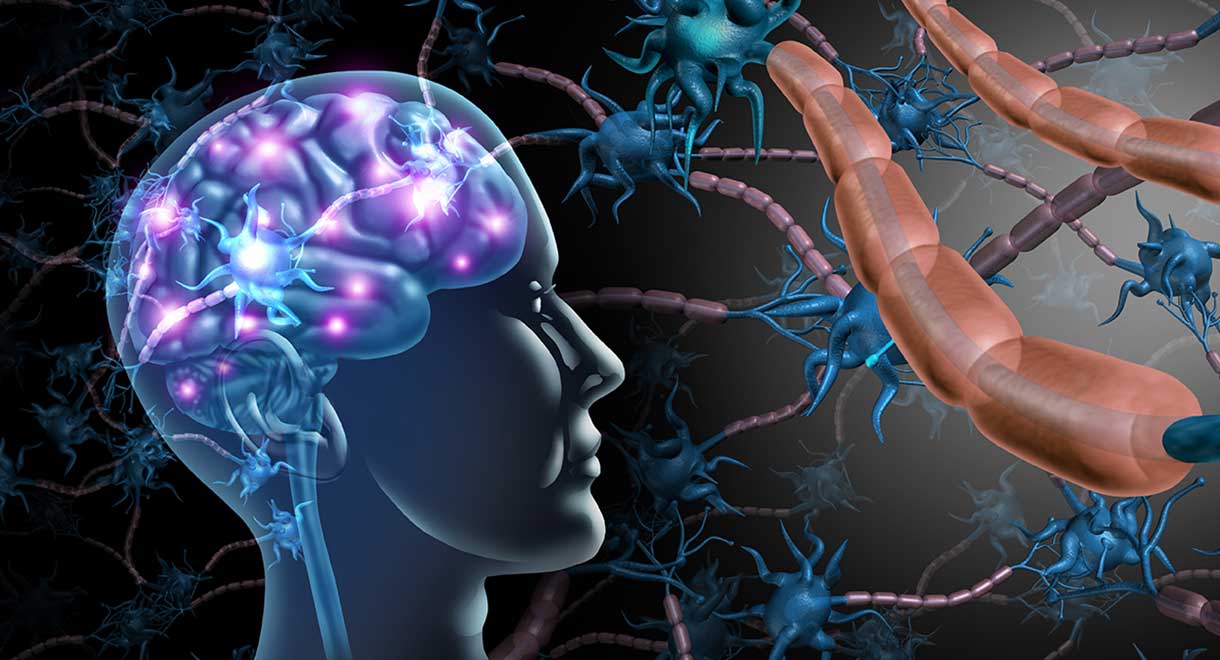Multiple Sclerosis
Multiple Sclerosis (MS) is a disabling neurological condition where there is patchy destruction of the myelin sheaths surrounding nerve fibres of the central nervous system (brain and spinal cord). When this happens, the messages between the brain and other parts of the body do not get through.
What causes it?
MS is an autoimmune condition, whereby one’s immune system attacks the myelin sheath surrounding the CNS as though it were a foreign body. It is not clear why the immune system turns on its own tissue but a combination of genetic and environmental factors are responsible.
MS affects over 16,000 Australians, 85,000 people in the UK, 350,000 people in the United States and more than 2.5 million people around the world. It reportedly affects twice as many women as men and symptoms usually appear between the ages of 20 and 40.
What are the symptoms?
Symptoms do vary, and for some people may be minimal, and there may even be periods of remission. For others, there may be a progressive pattern with one or more of the following symptoms;
- Tingling, pins and needles
- Numbness
- Muscle spasms
- Co-ordination and speech difficulties
- Problems with balance
- Paralysis
- Continence problems
- Visual problems, blindness
- Difficulties with concentration, attention, memory, judgment
Recommended books
- “Healing Autoimmune Disease”. A plan to help your immune system and reduce inflammation.
- “The Liver Cleansing Diet”. Follow the vital eating principles outlined in this book.
- “Magnesium – The Miracle Mineral”
- “The Ultimate Detox”. This is a gluten and dairy free diet.
Recommended treatment
- Avoid grains, dairy products, artificial sweeteners and refined sugars. Follow a diet high in raw vegetables, fruit and regularly consume raw vegetable juices. They will provide you with ample quantities of antioxidants.
- Make sure you have plenty of beneficial fats in your diet, as they make up the myelin shealth and reduce inflammation of the nervous system. Beneficial fats can be found in oily fish (e.g. salmon, sardines, mackerel, trout), extra virgin olive oil, avocados, raw nuts and seeds, flax seeds, coconut milk and organic, unrefined coconut oil. Ensure you don’t have a too low cholesterol level. Cholesterol forms a large component of the myelin shealth. Avoid having a cholesterol level below 187 mg/dL.
- A gluten free and dairy free diet is essential, as this will reduce inflammation generated by the immune system.
- The most vulnerable areas for this affliction are the brain, eyes, inner ear and peripheral nerves – visit www.dorway.com to find information on aspartame, the artificial sweetener which has been linked to various disorders including central nervous system disorders.
Interestingly, H.J. Roberts, MD.,F.A.C.P.,F.C.C.P argues that he has encountered scores of patients with aspartame disease in whom these features, in varying combinations, were diagnosed as multiple sclerosis. This has been in particular with those who used aspartame in soft drinks, tabletop sweeteners and gum.
Raw juicing
Raw juicing is always very helpful to boost the antioxidant defenses – for great healing juice recipes see my book titled “Raw Juices can save your Life”.
Difficult to diagnose
MS can be difficult to diagnose and your doctor may find some of the following useful:
- MRI (Magnetic resonance imaging) of the brain and spine.
- Testing CSF (cerebrospinal fluid) which may provide evidence of inflammation of the CNS.
- Visiting with a neurologist.
- Lumbar puncture.
- Drug therapy to help ease symptoms and slow the progression of the disease.
- Counselling – individual or group support.
Recommended supplements for multiple sclerosis
- Magnesium Tablets or Powder
Take 2 tablets twice daily or 1 teaspoon daily. This is necessary for transmission of nerve impulses, healthy nerve function and helping with muscular problems present with this condition. Magnesium is essential for the health of the myelin covering of nerves. - Fem Pro – Natural Progesterone Cream
Research shows benefit from progesterone with MS. Natural progesterone can help to reduce symptoms of MS, especially in women who get worse during the 2 pre-menstrual weeks. Women with endometriosis, heavy, painful or irregular periods, or women with polycystic ovarian syndrome who have MS benefit from a progesterone cream. Doses of progesterone range from 10 to 100 mg daily. - Selenomune
Take 1-2 capsules daily with food – selenium is an antioxidant which helps support healthy immune response and reduce infections that can trigger relapses in people with MS. - Livatone Capsules or Livatone Plus Powder
Take 2 capsules twice daily or 1 teaspoon twice daily – using a tonic that includes B vitamins for nerve transmission. - Fish Oil
Omega 3 fish oil reduces inflammation and improves immune system function, therefore, is highly beneficial for all autoimmune conditions. The myelin shealth is composed of fatty acids, therefore, supplementation may benefit MS. Take 3 to 6 capsules daily with food. - N Acetyl L Cysteine (NAC)
Take 1 capsule twice daily. The body uses NAC to manufacture glutathione. Glutathione is a powerful antioxidant, detoxifier and anti-inflammatory agent. It is beneficial for all autoimmune conditions. - Vitamin D
Take 1 capsule daily. Vitamin D helps reduce inflammation. Deficiency is common among those with MS.
The above statements have not been evaluated by the FDA and are not intended to diagnose, treat or cure any disease.


Leave A Comment